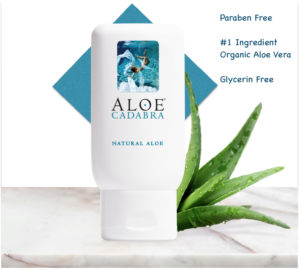 As often happens, my work and life recently intersected in a very interesting conversation I had with a nurse friend on the importance of choosing the right lubricant from a medical perspective. It was both relevant and compelling, so I asked her to join me on the blog to share her insights. Maybe some of her thoughts and feedback will help answer some questions you didn’t know you should be asking.
As often happens, my work and life recently intersected in a very interesting conversation I had with a nurse friend on the importance of choosing the right lubricant from a medical perspective. It was both relevant and compelling, so I asked her to join me on the blog to share her insights. Maybe some of her thoughts and feedback will help answer some questions you didn’t know you should be asking.
Me: Thanks so much for agreeing to take some time to share your thoughts, Natalie.
Natalie RN:It’s my pleasure. It wasn’t very difficult to see the benefits of your product in comparison to so many less healthy, more dangerous lubricants on the market.
Me: Which leads me to my first question. When I mentioned that Aloe Cadabra was all natural and made with 95% organic aloe, you immediately mentioned it’s healing properties. Would you care to elaborate?
Natalie RN: Sure! Not too long ago my husband had purchased a popular lubricant in an attempt to enhance our lovemaking. Although it was fun in the moment, I was left with an itchy sensation and vaginal dryness. It had put my pH balances out of whack. As women, it’s important that these levels are balanced. When they’re not we can experience anything from dryness, to irritation (like what I experienced), to infections. In fact, the older we get, the more important it becomes to maintain balance because we lose elasticity, dry out faster and often become more susceptible to the other symptoms. Add to that the fact that intercourse by nature tends to be rough, causing small contusions or cuts internally, aloe is perfect. It heals internal and external wounds, adds much needed moisture, all without creating a pH imbalance.
Me: That’s great, right?
Natalie RN: Absolutely. Thanks to my negative experience with your competitor’s lubricant, I did a bit of research and found some pretty disturbing things.
Me: Like?
Natalie RN: Like the fact that some of the other products out there actually contain harmful ingredients that can not only mess with pH balances, but have high osmolality, too. Now that’s really scary.
Me: How would you explain the importance osmolality to the everyday person?
Natalie RN: Why it’s important? How about this. High osmolality in products like lubricant, for example, can cause vaginal and tissue damage, leaving a person more vulnerable to sexually transmitted infections and HIV, for starters. It seems like some of the most popular lubricants double, triple, or more the acceptable osmolality levels. Considering that lubricants are used on condoms and during intercourse, I’m sure you can imagine how scary the danger can be.
Me: Aloe Cadabra stacks up pretty well in this department. Our osmolality levels are pretty even with the vagina’s natural levels. In fact, readers wanting more details should click HERE to learn more. Thanks so much for taking the time to chat with us. Are there any other benefits you think our readers would like to know about?
Natalie RN: Well, besides being good for you, natural, and organic, this product is especially useful for pregnant and older women. Not to discount the youth, but as I mentioned before, the aloe has healing properties. A friend who is pregnant for the first time came to me to ask if the need to be stretched out “down there” to create an easier delivery was a myth. I told her that it definitely aids in preventing unnecessary tearing. After learning about Aloe Cadabra, I went back and recommended the product. Not only it make the practice stretches she and her husband plan on doing easier, the healing properties of aloe will absorb into her walls, helping her. The same is true for older women as they experience dryness.
Me: And the fact that it’s edible is just icing on the cake, right?
Natalie RN: Absolutely!

[…] based on the type of lubricant you choose. How does that work? Well, you already know about your pH balance and how certain ingredients can impact that. But the other is osmolality, which pertains to the […]